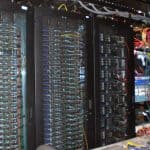
I usually write articles about topics I personally struggled to understand from the sources available to us such as books, online resources, and so on. I believe most technical concepts are fairly straightforward at their core, but the way we express ideas and translate our understanding into writing often makes them harder for others to grasp. That’s an area where we can all continue to improve.
As part of that journey, my goal with the Breaking Bad for Reliability newsletter is to be a communicator of Reliability Engineering principles, and I am doing this mainly for two categories of people: [Read more…]
 Almost all maintenance, reliability or asset management professionals have heard of reliability engineering. But what is reliability engineering? A quick google search will return the following definition “Reliability Engineering is engineering that emphasizes dependability in the lifecycle management of a product. Dependability, or reliability, describes the ability of a system or component to function under stated conditions for a specified period of time.”
Almost all maintenance, reliability or asset management professionals have heard of reliability engineering. But what is reliability engineering? A quick google search will return the following definition “Reliability Engineering is engineering that emphasizes dependability in the lifecycle management of a product. Dependability, or reliability, describes the ability of a system or component to function under stated conditions for a specified period of time.” What does the word statistics bring to mind when you hear it? Horrible high school classes that you sat through wondering why do I need this stuff? Complex math problems what were almost impossible to figure out? Or is it nonsense that
What does the word statistics bring to mind when you hear it? Horrible high school classes that you sat through wondering why do I need this stuff? Complex math problems what were almost impossible to figure out? Or is it nonsense that 







